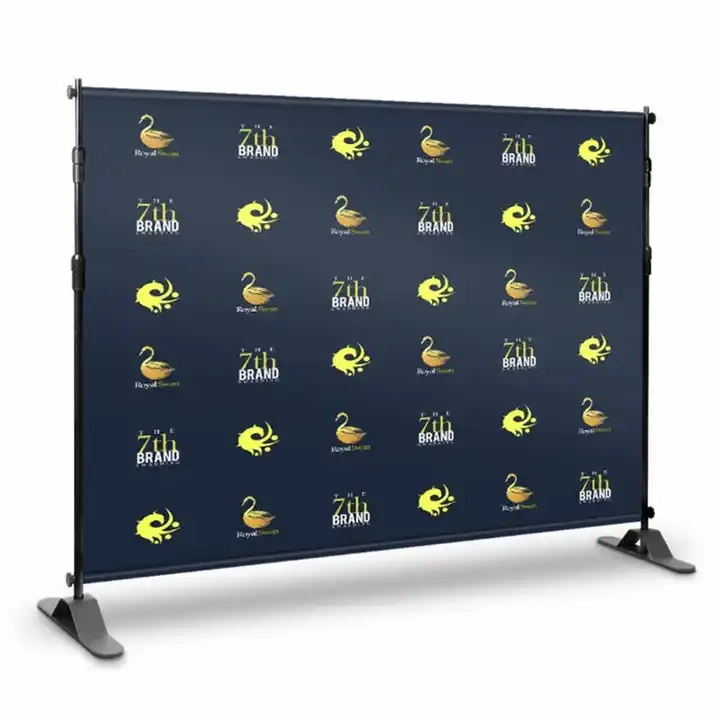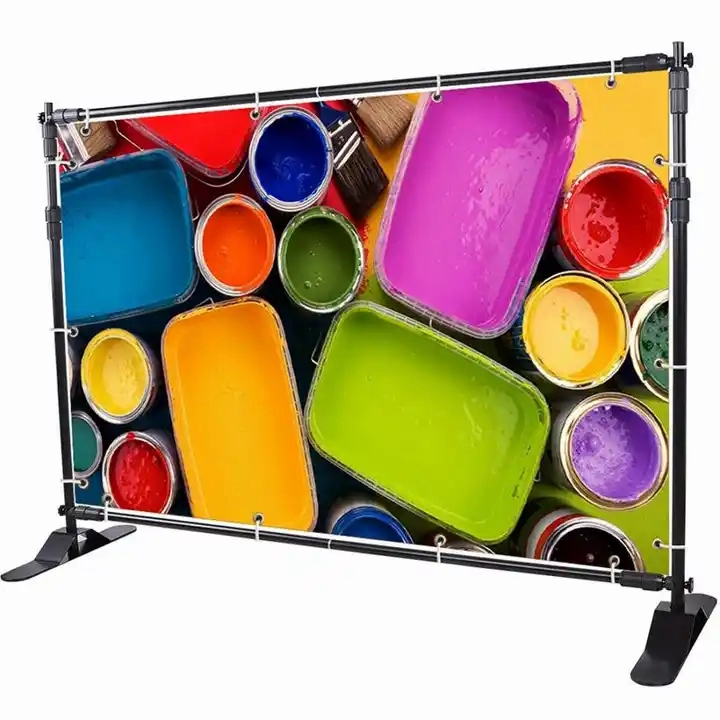Content Menu
● Why Display Stands Matter for Your Brand
● Exploring Different Types of Display Stands
>> Freestanding Display Stands
>> Countertop Display Stands
>> Wall-mounted Display Stands
>> Modular Display Stands
>> Customized Display Stands
● Important Factors to Consider in Selection
>> Aligning with Your Brand Identity
>> Product Considerations
>> Material Choice and Durability
>> Functionality and User Experience
>> Budget Optimization
>> Space and Placement Logistics
● Principles of Designing Effective Display Stands
>> Grab Attention with Visual Appeal
>> Establish a Clear Information Hierarchy
>> Encourage Action with Calls to Action
>> Incorporate Lighting Enhancements
>> Prioritize Sustainability
● Measuring the Impact of Your Display Stands
● Custom Display Solutions for Maximum Impact
● Placement Strategies to Maximize Visibility
>> High Foot Traffic Zones
>> Product Grouping for Cross-Selling
>> Rotate Displays Regularly
● Emerging Trends in Display Stand Design
>> Interactive and Smart Displays
>> On-Demand Personalization
>> Focus on Eco-conscious Materials
● Real-World Success Stories
● Step-by-Step Approach to Selecting Display Stands
● Conclusion
● FAQ
>> 1. What materials are best for durable display stands?
>> 2. How do I ensure my display stands match my brand identity?
>> 3. Are eco-friendly display stands effective for marketing?
>> 4. How can I measure the performance of my display stands?
>> 5. What are the latest trends in display stand design?
In today's saturated retail and promotional landscape, display stands play an indispensable role in capturing consumer attention and driving purchases. For packaging companies and brand owners alike, choosing the right display stands is not just about holding products—it's about creating an engaging and memorable brand experience that can significantly boost visibility. Tailored perfectly to support a wide array of products—whether it be paper boxes, plastic boxes, notebooks, playing cards, flashcards, stickers, labels, or booklets—display stands are an opportunity to differentiate your brand and increase sales both online and offline.
This article will guide you through the essentials of selecting display stands that amplify your brand presence. We will explore types, design choices, material selection, placement strategies, and emerging trends that ensure your displays are as effective as possible.

Why Display Stands Matter for Your Brand
With shoppers being bombarded by countless visual cues daily, display stands offer a controlled, focused environment that highlights your products' unique selling points in a compelling way. Unlike generic retail shelving, custom or well-chosen display stands speak directly to your brand's story. They clarify product benefits, organize inventory effectively, and encourage impulse purchases by placing products exactly where customers are most engaged.
In essence, a great display stand blends marketing with functionality. It informs the shopper, enhances the shopping experience, and makes your brand visually memorable.
Exploring Different Types of Display Stands
Selecting the appropriate type of display stand depends on your product type, retail environment, and marketing objectives.
Freestanding Display Stands
Freestanding units are the workhorses of retail display. These sturdy stands can feature multiple shelves, hooks, or compartments and are suitable for a variety of products including boxed goods, stationery, or promotional materials. Their ability to catch attention from multiple angles makes them excellent for entrances or store aisles.
Countertop Display Stands
Compact and convenient, countertop display stands are perfect for smaller items like flashcards, stickers, or branded notebooks. Positioned near checkout areas, they capitalize on impulse buying behavior. Because these stands don't occupy much space, they can be easily moved or updated.
Wall-mounted Display Stands
When floor space is limited, wall-mounted stands provide space-efficient ways to display labels, booklets, or lighter plastic boxes. They keep products organized vertically, improving product visibility without cluttering the store floor. Their fixed nature also discourages tampering.
Modular Display Stands
For brands seeking versatility, modular stands offer flexible configurations that adapt to seasonal campaigns or product line expansions. Their components—such as shelves and panels—are rearrangeable and interchangeable, making them a cost-effective long-term investment.
Customized Display Stands
Custom stands take branding to the next level by incorporating tailored graphics, unique shapes, brand logos, and special materials. Whether your goal is to showcase premium quality, eco-consciousness, or playful creativity, a bespoke display stand ensures your booth or retail presence stands out in exhibitions, stores, and showrooms.
Important Factors to Consider in Selection
Aligning with Your Brand Identity
Your display stand is a physical brand ambassador. It must reflect your brand's style, tone, and values. Use your brand's color palette, slogans, and logo placements consistently. For example, clean, minimalist designs may underscore professionalism, while colorful, artistic stands might appeal to a younger demographic.
Product Considerations
Consider the size, weight, and fragility of your products. Heavy or delicate items demand more robust materials and stable structures. Small items require clever compartmentalization or creative display windows. Think about how customers will access and interact with your products to ensure ease of use.
Material Choice and Durability
The right material balances budget, aesthetic, and longevity:
- Cardboard/Paperboard: Ideal for short-term promotions or lightweight products. Easily printed with vibrant designs but less durable.
- Plastic: Lightweight, economical, and greater durability. Suitable for mid-term displays.
- Acrylic: Offers a modern, glossy look with excellent transparency. Often favored for luxury or tech products.
- Metal: The most durable; perfect for heavy products or high-traffic locations where longevity is critical.
Functionality and User Experience
Well-designed display stands enable quick product access, clear visibility, and might include adjustable shelves or signage holders. Ease of assembly and breakdown is crucial if you participate in multiple trade shows or events.
Budget Optimization
Understand your financial parameters early on. Temporary campaigns can leverage cost-effective materials, whereas permanent retail fixtures justify investment into premium materials and intricate designs. Remember, a well-invested display stand can accelerate sales and pay for itself over time.
Space and Placement Logistics
Map your retail space methodically to plan for display stands. Consider natural pathways, lighting conditions, and visibility lines. Avoid overcrowding areas which can deter shoppers. The right positioning amplifies stand effectiveness.

Principles of Designing Effective Display Stands
Grab Attention with Visual Appeal
Use bold colors, large logos, and high-quality printing to make your display stand out. Incorporate imagery or 3D elements if it tells a better brand story.
Establish a Clear Information Hierarchy
Organize product placement so that the most profitable or promoted items are at eye level or within easy reach. Use signage wisely to highlight key product features or promotions without cluttering the display.
Encourage Action with Calls to Action
Encourage customers to “Try Now,” “Grab the Deal,” or “Learn More” by using clear, concise calls to action integrated into your displays. When possible, integrate QR codes or NFC tags for interactive experiences.
Incorporate Lighting Enhancements
Strategically placed LEDs or backlighting can dramatically enhance product presentation, especially for high-end products or special editions. Good lighting draws the eye and creates a premium feel.
Prioritize Sustainability
Modern consumers increasingly value sustainability. Using recyclable or biodegradable materials, eco-friendly inks, and reusable stands not only benefits the environment but also communicates your brand's commitment to responsible practices.
Measuring the Impact of Your Display Stands
Effectiveness can be assessed through a combination of quantitative and qualitative methods. Track sales metrics before and after display stand installation to gauge lift. Monitor customer dwell time and product interaction to assess engagement. Collect customer feedback directly or via surveys to understand impressions and usability.
Continuous optimization based on these insights helps in refining future displays for even better results.
Custom Display Solutions for Maximum Impact
Tailor your display stands by incorporating your products into the design fluidly. For example, for playing cards or flashcards, a stand that encourages hands-on interaction increases memorability. Similarly, notebook and sticker stands that combine tactile experiences with vibrant branding can create lasting customer impressions. Custom stands also enable you to test different messaging or graphics easily.
Placement Strategies to Maximize Visibility
High Foot Traffic Zones
Place your display stands where shoppers are most likely to notice them—near store entrances, along busy aisles, or beside checkout counters. These spots guarantee maximum exposure and impulse buying potential.
Product Grouping for Cross-Selling
Organize related items together to inspire bundle purchases. For example, position stationery items such as notebooks, pens, and labels near each other using complementary stands.
Rotate Displays Regularly
Keep your retail environment fresh and engaging by periodically moving or updating display stands. Rotation helps re-engage repeat customers and adapt to seasonal trends or promotions.
Emerging Trends in Display Stand Design
Interactive and Smart Displays
Integrating digital elements, such as touchscreens, QR codes, and motion-sensor lighting, transforms ordinary stands into immersive brand engagements. These technologies create memorable experiences that boost brand loyalty.
On-Demand Personalization
Digital printing technology allows rapid customization of display stands by region, audience segment, or campaign theme, providing targeted communication and higher conversion rates.
Focus on Eco-conscious Materials
Brands are increasingly opting for organic, recycled, and biodegradable materials in their stands to resonate with sustainability-minded consumers while minimizing environmental footprint.
Real-World Success Stories
A stationery brand increased sales by 30% after introducing illuminated acrylic display stands for their notebook collection, enhancing visibility and perceived value. Another company witnessed a 22% growth in impulse purchases by placing countertop flashcard stands near checkouts, while a sticker brand doubled customer engagement times by experimenting with modular display arrangements.
Step-by-Step Approach to Selecting Display Stands
1. Define Your Brand and Display Goals: Are you launching a new product, aiming to increase brand awareness, or highlighting offers?
2. Analyze Your Products: Dimensions, quantities, weight, and how consumers interact with them.
3. Set Your Budget: Consider initial and ongoing costs, including design and material.
4. Partner with Display Experts: Collaborate to develop concepts, prototypes, and finalize designs.
5. Test Prototypes: Collect opinions from customers and staff to ensure usability and appeal.
6. Install and Track: Implement the display stands in-store and monitor performance metrics continuously.
Conclusion
Careful selection of display stands is crucial in transforming how your products are perceived on retail shelves or event spaces. By aligning display stand design with your brand identity, product needs, and store environment, you create powerful visual cues that heighten customer interest and sales. Embracing modern trends such as sustainability and smart interactivity only deepens customer connection and loyalty. Evaluate and adapt your display strategies continually to ensure sustained brand visibility growth in an ever-evolving marketplace.

FAQ
1. What materials are best for durable display stands?
Durability-wise, metal and acrylic materials top the list. Metals provide robust support for heavy products, while acrylic offers a premium transparent look with substantial strength. Plastic and cardboard serve well for lighter or temporary displays.
2. How do I ensure my display stands match my brand identity?
Incorporate your brand's color palette, typography, logos, and design language consistently in your display stands. Working with specialized designers or display manufacturers enables the creation of bespoke elements that reflect your brand ethos.
3. Are eco-friendly display stands effective for marketing?
Absolutely. Eco-friendly stands resonate strongly with conscious consumers, boosting brand reputation. Sustainable materials like recycled cardboard, biodegradable inks, and reusable stands also reduce environmental impact.
4. How can I measure the performance of my display stands?
Monitor product sales, customer engagement, and feedback before and after introducing the displays. Sales uplift, increased customer dwell time, and direct shopper input provide reliable performance indicators.
5. What are the latest trends in display stand design?
Current trends include smart, interactive technology integrations such as touchscreens and QR codes; modular, flexible configurations; and a sharp focus on sustainable materials and minimalist designs that align with modern consumer values.
































